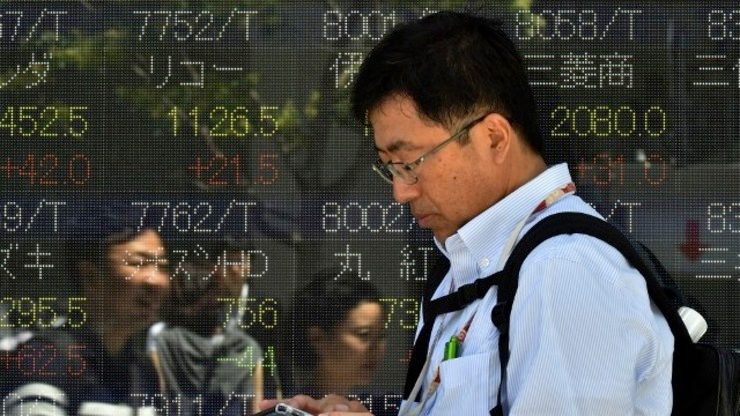SUMMARY
This is AI generated summarization, which may have errors. For context, always refer to the full article.

TOKYO, Japan – Japan’s economy contracted 1.7% in the 3 months to June as household and corporate spending slumped after Tokyo raised sales taxes, government data showed Wednesday, August 13.
The quarterly gross domestic product figures were the first since the levy rise, and underscore the challenges that Tokyo faces in pressing on with a bid to kickstart an economy long plagued by deflation and laggard growth.
They also raise questions about whether the government will usher in another tax hike next year, a move seen as critical to taming the country’s massive national debt.
While the April-June figures – which translated into a 6.8% contraction on an annualised basis – were slightly better than market expectations, they appeared at odds with the government and Bank of Japan’s take that the levy hike’s impact had been minimal.
The world’s no. 3 economy had been on the upswing as Prime Minister Shinzo Abe’s growth blitz, dubbed Abenomics, helped sharply weaken the yen, giving a lift to exporters’ profitability and driving a stock market rally last year.
A huge monetary easing campaign by the Bank of Japan (BoJ) was a cornerstone of the programme.
But economists warned that the strong growth would take a hit as Tokyo hiked the consumption tax to 8% from 5% – the first levy hike in 17 years.
Millions of shoppers launched a last-minute buying binge on everything from cars and washing machines to televisions and alcohol, before the increase on April 1.
Demand fell sharply after prices went up.
Last week, the central bank warned over a worsening export and factory output picture, but it held fire on launching more stimulus, saying the economy was recovering.
But the latest data were likely to add to speculation that a pullback in the economy would force the BoJ’s hand on more monetary easing.
Bank of Japan stimulus
Bank governor Haruhiko Kuroda has repeatedly said he was ready to pull the trigger on more stimulus – similar to the Federal Reserve’s quantitative easing – but last week gave little indication such a move was imminent.
It remains unclear if Abe will follow through on a plan to raise taxes again to 10% next year in light of the growth data, and as he faces criticism over the pace of his efforts to shake up the highly regulated and protected economy.
The country’s last sales tax rise in 1997 foreshadowed a drop into years of deflation and tepid growth.
But many economists have noted that the circumstances were different, with the earlier rise coming in the midst of the Asian financial crisis.
“The contraction was within market expectations, but the decline in private consumption was bigger than we thought,” Yoko Takeda, chief economist with Mitsubishi Research Institute, told AFP after the growth figures were published Wednesday.
“But we still see the Japanese economy as being on course for a gradual recovery.”
She added that the second-quarter figures were an “exception” due to the tax hike.
“It is more important to see the July-September quarter,” Takeda said.
“That will be the key to predicting the future of the economy, and crucial for making a decision about raising the sales tax again.” – Rappler.com
Add a comment
How does this make you feel?
There are no comments yet. Add your comment to start the conversation.